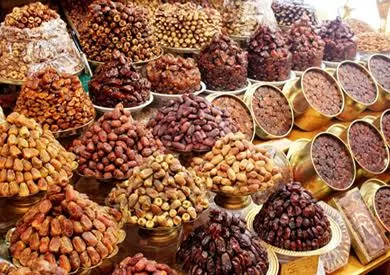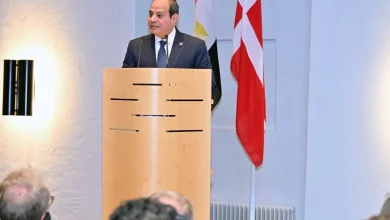Egypt adopts ambitious strategy targeting global date market

Egypt, the world’s largest producer of dates, sits on a golden opportunity to dominate the global date market, with an annual yield exceeding 1.8 million tonnes, accounting for 18 percent of the global output.
Despitea wealth of dates, Egypt’s export performance is modest. According to government data, only around 4-5 per cent of its annual production is exported.
Recognising the economic potential of the date industry, the Egyptian government hasrecently drawn up a strategy to develop the palm date sector and increase exports over the coming five years.
“Egypt’s date exports are low because 52 percent of our harvest is moist, and these products are perishable. Only three percent is dry, while 20 percent is semi-dry,” Head of the Central Laboratory Director of Palm Research at the Ministry of Agriculture and Land Reclamation, EzzeddinGadallah said, adding that Egypt focuses on exporting semi-dry dates since they are most suitable for exports.
The new strategy is meant to develop the dates export market by cultivating more varieties that have higher economic return, such as Barhi, Magdool, Khalas, Sukkari, Agwa El-Madina, and Anbara, Gadallah noted.
According to agriculture expert Sherif Fayyad, the date sector still operates at levels of production, packaging, manufacturing, transportation, and marketing, primarily directed towards the domestic market. The sector still requires an effective structure for its development and boosting exports.
“The major constraint is the poor logistics and supply chain management of the whole date market. In fact, there is not an effective link between traders, farmers, packers, and so on,” Fayyad said.
“Shortages in cold and freezing warehouses are one of the main reasons why Egypt’s export market of dates is weak, since regular warehouses result in the infection of crops with pests,” he added.
Other challenges include lack of qualified and trained staff and upgraded factories, Fayyad noted.
Fayyad believes that the new strategy to promote date exports appears promising, restoring hope that Egypt’s date export market will grow stronger.
The strategy, he pointed out, is meant to open new date export markets, establish logistics areas by increasing the number of refrigerated trucks, expand the cultivation of luxurious varieties with good economic returns, and build cold and freezing warehouses where dates are harvested.
“The project also seeks to raise the price of unprocessed date exports by benefiting from its secondary products to maximise the added value,” Fayyad said.
It is equally vital to revitalise a large industrial sector relying on palms, such as in the production of molasses and vinegar, and advance related businesses, such as packaging and marketing, he stressed.
“Egyptian dates are abundant, but many types are not ready for international markets,” Agricultural expert Hany Hussein said.
“Competing globally requires a mindset shift. Farmers and exporters must think beyond the domestic market and adapt to international consumer preferences,” he added.
To establish itself as a global leader, Hussein said, Egypt must also invest in branding. “Countries like Tunisia have successfully marketed their dates as luxury products, commanding premium prices. Egypt, with its vast production, has a similar opportunity but needs to highlight its unique strengths,” he added.





